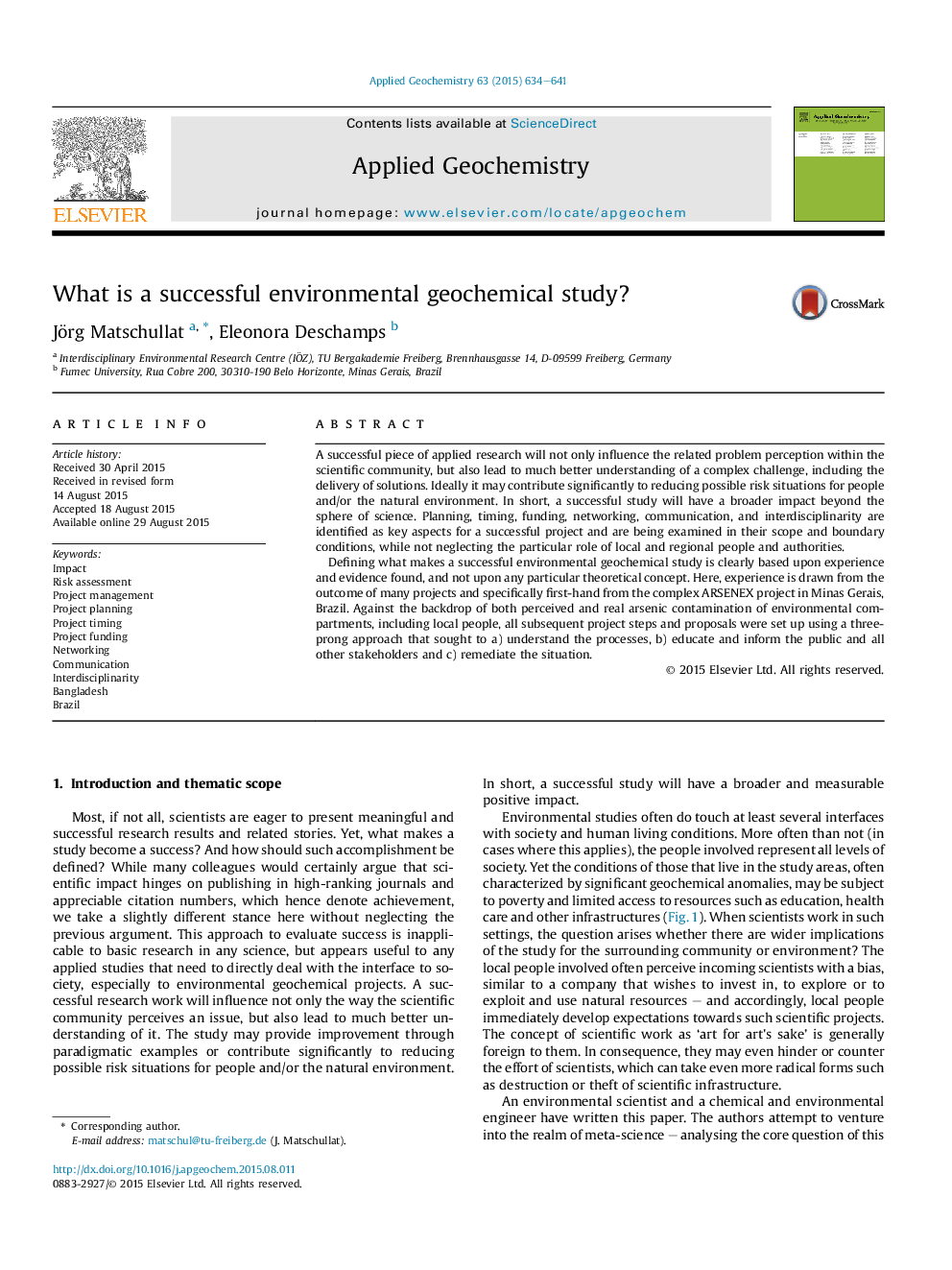| Article ID | Journal | Published Year | Pages | File Type |
|---|---|---|---|---|
| 6334901 | Applied Geochemistry | 2015 | 8 Pages |
â¢One of the first meta evaluations on success parameters for applied scientific studies.â¢Elucidation of the difference between scientific understanding and impact.â¢Criteria definition for success factors.â¢Helpful guidance for future project evaluation.
A successful piece of applied research will not only influence the related problem perception within the scientific community, but also lead to much better understanding of a complex challenge, including the delivery of solutions. Ideally it may contribute significantly to reducing possible risk situations for people and/or the natural environment. In short, a successful study will have a broader impact beyond the sphere of science. Planning, timing, funding, networking, communication, and interdisciplinarity are identified as key aspects for a successful project and are being examined in their scope and boundary conditions, while not neglecting the particular role of local and regional people and authorities.Defining what makes a successful environmental geochemical study is clearly based upon experience and evidence found, and not upon any particular theoretical concept. Here, experience is drawn from the outcome of many projects and specifically first-hand from the complex ARSENEX project in Minas Gerais, Brazil. Against the backdrop of both perceived and real arsenic contamination of environmental compartments, including local people, all subsequent project steps and proposals were set up using a three-prong approach that sought to a) understand the processes, b) educate and inform the public and all other stakeholders and c) remediate the situation.
